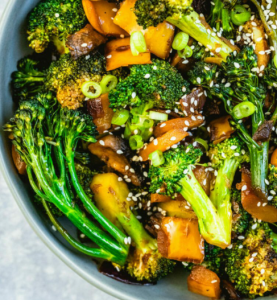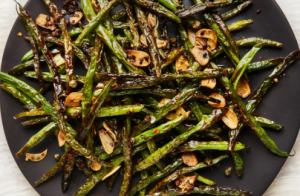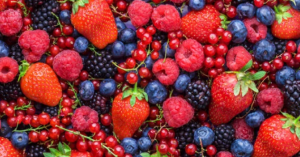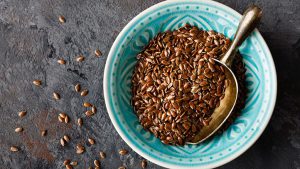Our diet and what we eat can drastically affect many aspects of our life; health being one of them. Wrong eating can not only lead to an unhealthy lifestyle but can also increase the risk of developing chronic diseases like heart disease, diabetes, and cancer. To avoid such diseases you must include the following food items in your diet daily:
1) Broccoli

Broccoli contains sulforaphane, a plant compound found in cruciferous vegetables that may have potent anti-cancer properties.
Including broccoli with a few meals per week may come with some cancer-fighting benefits. One test-tube study showed that sulforaphane reduced the size and number of breast cancer cells by up to 75%. It also reduces the risk of colorectal and colon cancer.
2) Carrots

Several studies have found that eating more carrots is linked to a decreased risk of certain types of cancer.
Adding carrots can lower the risk of stomach cancer, prostate cancer, and lung cancer.
3) Beans

Beans are high in fiber, which some studies have found may help protect against colorectal cancer. It is also known for decreasing the risk of tumor recurrence.
4) Cinnamon

Cinnamon is well-known for its health benefits, including its ability to reduce blood sugar and ease inflammation.
In addition, some test-tube and animal studies have found that cinnamon may help block the spread of cancer cells.
5) Berries

Berries are high in anthocyanins, plant pigments that have antioxidant properties and may be associated with a reduced risk of cancer.
6) Flaxseed

High in fiber as well as heart-healthy fats, flaxseed can be a healthy addition to your diet.
Some research has shown that it may even help decrease cancer growth and help kill off cancer cells.
7) Tomatoes

Lycopene is a compound found in tomatoes that is responsible for its vibrant red color as well as its anti-cancer properties.
Several studies have found that an increased intake of lycopene and tomatoes could lead to a reduced risk of prostate cancer.
Source: Healthline

